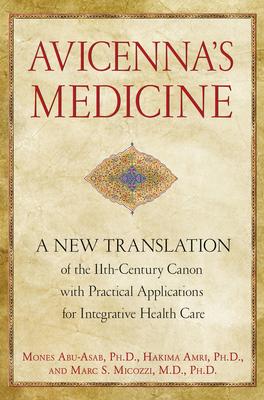
Publish Date |
July 04, 2013 |
Category |
Health & Fitness / Naturopathy Health & Fitness / Holism |
Price |
$42.00 |
ISBN: 9781594774324
Format: Hardback
Pages: 480
Publisher: Inner Traditions/Bear & Company
Published: July 04, 2013
“Avicenna’s Canon is not only the most important and influential single text in the history of medicine, it is also the main work of reference for a major traditional school of medicine that is still alive and has much to teach us today. The present translation, Avicenna’s Medicine, is welcome not only because it makes many of the ideas of the Canon accessible in English but also because it deals with practical applications of its principles for those drawn to holistic or integrative medicine wherever they might be.”“The next time you visit your physician, whisper a prayer of thanks to Avicenna, because many of the foundations of modern medicine--empirical observation, objectivity, and rationalism--surfaced through his towering genius a millennium ago. Avicenna’s Medicine is a valuable link in medicine’s rich history. As the authors make clear in this marvelous translation, Avicenna’s relevance to our era has not been exhausted.”“Avicenna’s Medicine represents a breath of fresh air to those interested in the history of Western medicine. It is presented in a consistently clear and concise form that makes Avicenna’s writings accessible to the English reader. In addition, a number of chapters at the beginning of the book act as a primer in the principles of Graeco-Arabic Medicine. Avicenna’s Medicine is one of the most interesting and exciting volumes that has come my way in a long time. It provides insight into a medicine that is a historical part of the development of modern Western medicine and an ethnic traditional medicine that is still more or less practiced on the Indian subcontinent and in some parts of the Middle East. This may well serve to rekindle a resurgence of interest in Avicenna’s medicine in the West; something it surely deserves.”“While it is intended for a medical audience, Avicenna’s Medicine is accessible to anyone who is interested in a holistic approach to health...”“A book like this is extremely timely. ..It is a brilliant illustration, on a solid scientific basis, of what a traditional medical system can bring to the 21st century medicine and medical debates. It is certainly not an easy read, but one that requires a pen in hand and time to reflect upon the ideas expressed within. This exercise of interpretation is a good introduction to traditional medicine thinking that will be of interest to students, scholars, and the intellectually curious.”